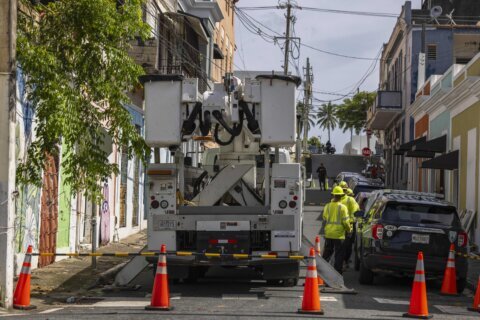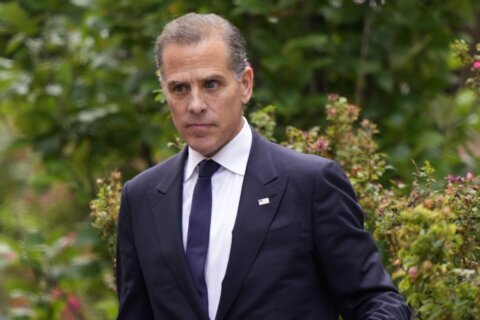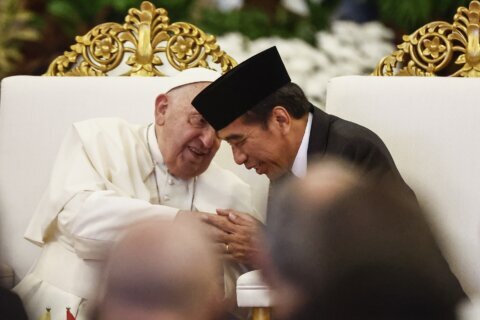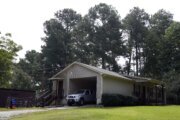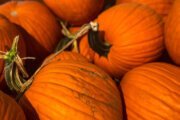It’s literally what the world’s been waiting for: a COVID-19 vaccine. On Friday, the U.S. Food and Drug Administration issued the first emergency use authorization for Pfizer-BioNTech’s vaccine, with distribution starting today — and some folks receiving the first injections this morning.
Several additional vaccine candidates are also poised to receive FDA approval for eventual release and distribution to health care workers and other high-risk groups, followed by the general public.
In this situation of utmost urgency, pharmaceutical makers Pfizer, Moderna, Johnson & Johnson, AstraZeneca and Novavax have been conducting U.S. and international clinical trials of their respective vaccines. Already found to be safe in the short term, these vaccines are in late-stage studies demonstrating how well — and for how long — they work. Top contenders are showing 90%-plus effectiveness at preventing the novel coronavirus infection.
[See: Fear, Courage, Grit: Meet More Than 50 ‘Hospital Heroes’ in Pictures.]
Ordinary people have been braving the unknown to make COVID-19 vaccine clinical trials possible. In these double-blind studies, neither they nor the researchers know who gets the real vaccine and who gets a sham placebo injection. How long protection against the virus may last remains to be seen, as do any potential long-term vaccine complications.
These volunteers represent diverse racial, ethnic and age groups to help ensure that clinical trials are inclusive and results are pertinent to everyone. U.S. News spoke to nine of them about why they chose to step up and roll up their sleeves. Their edited responses are below:
Jeff Eisenman, 46, IT professional, his wife, Dusta, 44, a licensed vocational nurse and their oldest child, Allyson, 17, a high school junior, volunteered for the Phase 3 Pfizer clinical trial. They went to Kaiser Permanente Medical Center in Santa Clara, California, for the study. The family lives in San Jose, California. Pfizer is conducting clinical trials of its COVID-19 vaccine in 39 states. The Eisenman family is participating in an ongoing study that will last two years.
How did you learn about the study?
Jeff: My wife works with nurses who are helping run Kaiser’s portion of the trial. She heard about it from them.
What motivated you to volunteer, with so many unknowns?
Dusta: I’m a health care worker — if I’m not willing to do it, I’m indicating to people they shouldn’t have faith in it. We as health care workers believe in it — and you should, too.
Allyson: I wanted to volunteer with my mom. I want to get back to my normal life. The vaccine is probably what’s going to get us out of this mess.
Jeff: I’ve had some health conditions in my life. I’ve thought about the role that hospitals have played in keeping me alive. Now we’re the humans who are needed. I really feel like the drug companies, the hospitals and the people behind those companies have done a lot of work behind the scenes. I feel like I have a debt to the system to participate in this.
What did the trial involve?
Dusta: They did a pre-antibody test, then injected us with the placebo or the vaccine. We kept a weekly log, then went in a couple of weeks later for a second booster (this was in late September).
Were you scared or nervous? What were your biggest fears?
Allyson: I really didn’t have any fears. I knew that getting the vaccine wasn’t much of a risk for someone like myself. I’m more scared of not getting back to my normal life and not going back to high school than I am of getting the virus.
Dusta: I was not necessarily scared to get the vaccine. In my job, I’m near coronavirus patients who I have to swab. I’ve been more nervous about catching the coronavirus since I’m near sick people all the time.
Jeff: I had no fear of getting sick from the vaccine. I have confidence in the process. These scientists weren’t born yesterday. They’ve been working on this for a long time. This just happens to be the latest tool in their vaccine toolbelt.
Did you have any side effects?
Jeff: I felt tired after the second shot. Normal vaccine side effects.
Dusta: After the second injection, I did feel like I had flu-like symptoms. I didn’t have a fever but I was tired for about 24 hours and had the chills.
Allyson: My shoulder was sore a day after each injection.
[See: Personal Protective Equipment (PPE): Definition and Examples.]
What is your biggest hope moving forward?
Jeff: That everyone gets the vaccine. I have a lot of friends who say they don’t want to get the vaccine when it first comes out. I hope they listen to the doctors who say this is safe and effective because this is what’s going to get us back to normal life.
Dusta: I hope people see our health care providers and our leaders get it and gain confidence in it. Maybe we can reclaim our summer and our kids can reclaim their childhood a little bit. Just to be able to put something on the calendar — maybe we can go on a vacation or to a baseball game — would be amazing.
What surprised you about the study?
Jeff: I’ve gained more confidence in the clinical trial process and the research that’s been happening for a long time to make this vaccine possible.
Dusta: That so many people said they wouldn’t get the vaccine at the beginning. That it was rushed and unsafe. Now it seems many people have changed their minds. It seems like we can’t get the vaccine out fast enough to the public.
Allyson: I didn’t have any expectations. I joined the trial a few weeks after my parents , so I heard them talking about the trial and felt comfortable.
Do you know anyone who has contracted COVID-19?
Dusta: Actually, a couple of my coworkers. One in particular is still dealing with fatigue and taking longer to recover.
Don Stevens, 54, is Chief of the Nulhegan Band of the Coosuk Abenaki Nation in Vermont. The leader and public face of the tribe is also an IT manager and the HIPAA (Health Insurance Portability and Accountability Act) security officer for the counseling service of Addison County. He is taking part in the Phase 3 AstraZeneca trial through the University of Vermont Medical Center.
Editor’s note: The AstraZeneca-Oxford study is enrolling volunteers who are at risk of COVID-19 illness. Participants will be randomly assigned to receive two injections of either the vaccine or a placebo, four weeks apart. About 30,000 volunteers are expected to participate across the U.S., with roughly 400 enrolled at the UVM Medical Center.
A potential enrollment barrier has been mistrust among Native Americans in Vermont, some of whom have ancestors who were used as participants in eugenics research in the 1920s and 1930s that led to sterilization. Chief Don Stevens, who advocated for the apology given in June 2019, is now working to bridge that gap of mistrust to help his people accept the protection of a COVID-19 vaccine — should it be proven safe and effective for members of his group.
What motivated you to volunteer, with so many unknowns?
It was a little nerve-wracking, of course. But you’re doing it for a good purpose and a greater good. When this COVID thing hit, we found that (Abenaki members) were three or four times as likely to be infected as others. And it was kind of like: We’ve got to do everything we can to protect our elders. Because we have high rates of chronic diseases like diabetes and heart disease. So, for me, it’s about protecting our people, because we have a long history in Vermont with the Abenaki people not being too happy with the medical professions — which we’re starting to change.
What did the study involve?
I had the first shot on around Nov . 8. I just finished up (on Dec. 9) with my second shot, so I’m on my way back to work. It felt like any other shot. You roll up your sleeve, give your arm to them and there you go.
Did you have any side effects?
The first shot stung a little bit when it went in. I got it around 9 a.m. Around 6 p.m., I started getting some of the symptoms. Sore arm, weakness, being tired, a little headache. So I went to bed a little earlier than normal. And I woke up with basically just a headache and a sore arm. But then it went away. I took some ibuprofen. It wasn’t anything major. Nothing more than you would get if you took a flu shot.
Were you scared or nervous? What was your biggest concern about participating?
It’s the unknown, right? One of the reasons we’re asked to participate is because they didn’t have a lot of data on Native American people, and particularly our people. So, you don’t really know what’s going to happen; whether you could get sick from it or whether you might be protected. I wouldn’t ask my people to do anything that I wouldn’t do myself as a leader. That’s what leaders do. So, I said: Well, I’ll step up to the plate and do it, and that way our people can judge based on what happens to me. That’s why I was the one of the first people in the state to get the shot.
If there’s one thing you wish our readers knew about COVID-19 or these new vaccines, what would you tell them?
Every elder or person we lose, we lose our history, we lose our culture and we lose just our own people. So, for us, if there’s a way to protect them and make sure they take the vaccination that would help them, then I’m going to do anything I can to promote that — if it’s safe.
What’s your biggest hope going forward, as the pandemic stretches on?
We’re trying to stay connected, but you have mandates where you can’t meet or you can’t be in touch with each other. We do our best to keep our people together because we’re nomadic people. We don’t have a reservation. So we live amongst the communities.
My biggest hope is that vaccinations are successful and that our people get vaccinated and that we can get back to our communities. We thrive on that interaction. A lot of our elders are afraid of getting sick, so they’ve been shut in, and that causes mental-health issues.
Part of my job as a leader is to try and make our people feel comfortable, because if a vaccine comes out, I don’t want them to be skittish about getting it.
Dr. Kellie McFarlin, 46, is a surgeon with Henry Ford Health System in Detroit, a study site for the Moderna COVID-19 vaccine. McFarlin, who is African American, volunteered to receive the experimental injection. About 30,000 U.S. participants are enrolled in Moderna’s COVID-19 vaccine trials, at 100 clinical research sites throughout the nation.
Have you or a loved one had COVID-19?
Unfortunately, early in the pandemic, in April, one of the youngest people in Michigan to pass away was our little cousin Skylar at 5 years old. We were really devastated by the information that she developed a rare complication of COVID.
What motivated you to volunteer for the trial, with so many unknowns?
As the mom of 4-year-old twin girls, I wanted to do whatever I could to protect my family. COVID-19 disproportionately affects minority populations. It’s important to know that the study results reflect the community that I serve and live in.
What did it involve?
Even though I’m a physician, they took their time to explain everything. If I were someone from my community without a medical background, I really would want someone to go through all the steps and explain all the terminology. They did a great job of breaking all that down.
Were you nervous? What was your biggest fear?
I understood the research project and the phase they were in. I felt assured that a lot of the safety things were already worked out — that this was really just to see what was effective.
Did you have any side effects?
I just reported having pain at the injection site like I would for any shot. It’s a little hard for me to tell if I’m extra tired — I work full time and I have twins, so I’m always pretty busy and tired.
If there’s one thing you wish our readers knew about COVID-19 or these new vaccines, what would you tell them?
It’s really important to be involved in a clinical trial — being available and willing to help.
Are you exposed to COVID-19 on the job?
I work at the hospital, where I’m a general surgeon and I see patients. But we’re always in PPE. I’ve not taken care directly of a COVID patient. All of our surgical patients are prescreened for COVID to give them the best outcomes.
[SEE: How Does Coronavirus Spread?]
Ellen Rickert, 52, a former teacher and school administrator, is now a stay-at-home mom in Nashville, Tennessee. Rickert volunteered for the Phase 3 trial of the Janssen-Johnson & Johnson COVID-19 vaccine at its Vanderbilt University Medical Center site, with an expected enrollment of 60,000 U.S. participants overall.
How did you hear about the vaccine trial?
My father is a physician at Vanderbilt. He and my mother both participated in the Moderna trial (which is also being conducted at VUMC). When I found out they were doing it, I was really interested in being part of it.
What motivated you to volunteer, with so many unknowns?
One of my biggest problems with the coronavirus is feeling productive — having the feeling that I’m doing something meaningful. I initially got rejected from the study because, I think, a few months ago they were looking for people in higher-risk categories. Then, about three weeks ago I received an email from the group at Vanderbilt … so I immediately signed up.
What did it involve?
Yesterday (Dec. 2) was my first two-hour visit and I actually received the injection. Of course, it’s a blind study, so 50% chance it was a placebo and 50% chance I got the vaccine. I go back for a follow-up at the end of December.
Were you scared or nervous?
Not at all. I felt like, especially at this point in the process, the news has been so encouraging for the first time in forever, that it just seemed like a safe thing to do. And I trust Vanderbilt so I was not concerned that I would be put in harm’s way. I did a little homework and it never occurred to me that it would be anything other than positive.
Did you have any side effects in the hours after the injection?
My arm was sore. They told me to start taking Tylenol at 3 p.m., just in anticipation. I’ve had some minor … maybe feeling a little achy and lethargic, but I’m totally fine now. And I slept fine.
I was anticipating it being a lot worse than it was. Having read about doctors saying the public had to understand there will be some side effects; that kind of thing. And for all we know I got the placebo.
What’s your biggest hope going forward, as the pandemic stretches on?
I hope I got the vaccine (not the placebo). For the first time in nine months, I’ve felt somewhat hopeful. There’s light at the end of the tunnel. It’s just been amazing to watch from the sidelines how fast science has worked. My hope, of course, is that this (Johnson & Johnson) trial is as successful as the rest. This will hopefully be a distant memory a few months from now — but we’ll see.
If there’s one thing you wish our readers knew about COVID-19 or these new vaccines, what would you tell them?
I’ve never done anything like this before. At Vanderbilt, it was such an easy process and so user-friendly for me, the participant. I would completely do it again. There was nothing scary. They were extremely informative, walking me through step-by-step what to expect, what the trial meant, a lot of scientific terms that I was not familiar with, putting it in layman’s terms.
Vanessa Ferragut, 43, is an event planner and part-time bartender in the District of Columbia. Ferragut, who is a first-generation Cuban-American, participated in the Moderna trial through George Washington University Hospital.
How did you hear about the vaccine trial?
My mom actually heard about it on the news. I got my master’s at GW and so she said, ‘Hey, there’s this trial going on. I know you’re back to bartending for now , and you need to check it out. And I said, ‘OK,’ and I emailed them.
What motivated you to volunteer, with so many unknowns?
Knowing that I’m in the events industry and a part-time bartender. Next to hospital and essential workers like those in grocery stores, the events industry does bring a lot of people together , and that’s a great way to spread (the virus). So why not be one of the first to have the vaccine?
I did my research. It’s a blind study — so I could have gotten the placebo or I could have gotten the vaccine. When they un-blind the study, finally, and if they tell me that I got the placebo, I will be the first in line to get the real thing. So, even before it actually hits the shelves, those of us in the trial will have the option of getting it first.
What did the study involve on your end as a participant?
It involves going in and just having them review with me what the terms and conditions were to participate. Understanding that this was going to be two shots, I did ask a lot of questions. What I was most afraid of was catching COVID due to being part of the trial. They told me that wasn’t possible: It’s completely synthetic. It’s manufactured in a lab. So that put me at ease.
And also, the side effects (described) were very minimal. Like maybe some tummy aches, some diarrhea, site injection pain, fatigue. It felt like a low risk.
Did you have any side effects?
I thought I had some side effects after the second shot. But they went away very quickly.
If there’s one thing you wish our readers knew about COVID-19 or these new vaccines, or being a trial participant, what would you tell them?
A lot of people are scared and aren’t going to jump into getting the vaccine right away. But going through this, and having the vaccine — if I had it — in my system for two months: I’m fine. I’m 43 years old. I am active. I am healthy. I would like to stay that way.
Fred Osann and his wife, Sheila, both 77, are retirees who live in Wilmington, North Carolina. Fred is a retired Chrysler executive, and Sheila is a former teacher who had her own public relations firm. They both participated in the Phase 3 Pfizer study. For the trial, they went to the Accellacare site in Wilmington.
How did you hear about the vaccine trial?
Sheila: I have been in other studies for new medications , including one with Pfizer.
Fred: I have had successful experiences with other trials, so I volunteered for this program.
What motivated you to sign up, with so many unknowns?
Sheila: I am familiar with new drug testing for several reasons. I’ve been in other drug testing programs, including one with Pfizer. I own Pfizer stock that was given to me by my aunt years ago. She was a medical editor and often talked about the rigorous drug testing companies had to do to get a new drug approved. I have asthma and am 77 years old so I’m in an at-risk group. I wanted to be one of the first ones to receive the vaccine.
What did it involve?
Fred: I began this process on Aug. 25, with an interview, an extensive questionnaire and blood work. I was tested for COVID-19 and given my first shot. Three weeks later, I received my second shot. They loaded an app on my cell phone and asked for weekly reporting on my general health. Four weeks later, I returned for another blood draw and COVID-19 test. My next visit is in early March.
Were you nervous? What was your biggest fear?
Sheila: I really wasn’t nervous. My biggest fear was that I would receive the placebo and not be protected from COVID.
Did you have any side effects?
Sheila: I’ve had absolutely no side effects. I do think I received the placebo.
Fred: I had no side effects from the shots. This probably means I received the placebo, but that is just conjecture at this point.
What’s your biggest hope going forward, as the pandemic stretches on?
Sheila: I hope this vaccine is the answer to this COVID nightmare. So many scientists have worked tirelessly to see this vaccine and others come to market. Science is the answer to controlling the virus , and we all need to listen to what the scientists have to say.
Fred: My hope is that they will un-blind my status and that I will receive the shots if I did not get the real meds during the test. We will continue to follow all recommended guidelines until the all-clear is sounded.
Have you or a loved one had COVID-19?
Sheila: I am very fortunate not to have had COVID , nor have any of my family members.
Fred: We know about four people in our sphere of friends who have recovered from the virus. Sadly, we have heard of two deaths.
If there’s one thing you want our readers to know about COVID-19 or the new vaccines, what would it be?
Sheila: Trust the scientists and wear a mask. They have years of experience developing and testing new drugs and vaccines. It is the only way we are going to get back to normal.
Fred: Wear a mask, wash your hands, limit unnecessary outside contact, social distance and hang out with others who do the same. Get the vaccine as soon as possible.
More from U.S. News
Home Remedies Not to Try for COVID-19
Countries Without Reported COVID-19 Cases
Vaccine Study Volunteers: Taking Their Shot to Beat COVID-19 originally appeared on usnews.com

